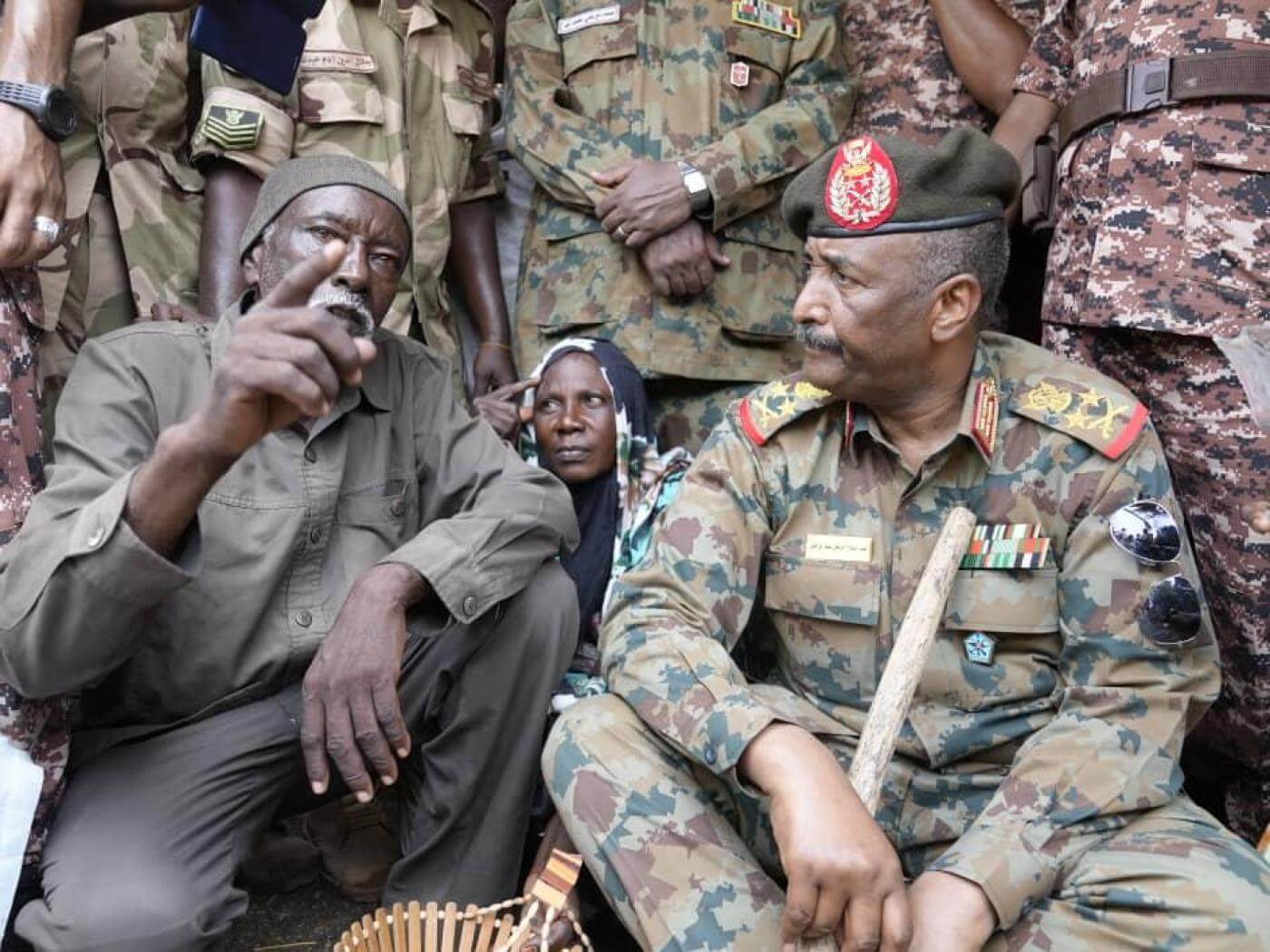The Sudanese military on Tuesday launched a massive attack on Ethiopian positions in the disputed Al Fashaqa border region, firing artillery shells and an airstrike after accusing its neighbour of executing eight Sudanese citizens last week.
The Sudanese military claimed that it had recaptured several areas in Al Fashaqa that were occupied by the Ethiopian army. A Sudanese military official told Reuters that the army had captured the strategic location of Jabal Kala al-Laban. “Sudan’s army fired long-distance artillery from Monday morning until Tuesday afternoon, but nobody was injured,” a senior official from Ethiopia’s Amhara region said. Al Fashaqa borders the Ethiopian regions of Tigray and Amhara.
No casualties were reported.
The latest round of clashes in the contested region erupted days after Sudan vowed to exact revenge for the alleged murder of seven Sudanese soldiers and one civilian by Ethiopian troops in Al Fashaqa. Khartoum said the eight individuals were captured by Ethiopian forces near the border on June 22.
Military leader Abdel Fattah al-Burhan has said Sudan will not be "frightened or back away" as he visited a border region where Khartoum accuses Ethiopia of executing seven soldiers and a civilian, a charge that Ethiopia has denied. pic.twitter.com/xUTLS4gCQw
— Reuters Africa (@ReutersAfrica) June 28, 2022
The military released a statement calling the killings a “cowardly act” that violated “all laws and customs of war and international humanitarian law.” Military chief Gen. Abdel Fattah El Burhan visited Al Fashaqa on Monday and vowed to retaliate against Ethiopia. Sudan also recalled its ambassador to Addis Ababa and summoned Ethiopia’s envoy to Khartoum to protest the killings.
While Ethiopia initially rejected Sudan’s accusations, the Foreign Ministry tweeted on Monday that the “tragic incident” occurred in Ethiopian territory after an incursion by a unit of the Sudanese army backed by the Tigray People’s Liberation Front (TPLF) rebels. The ministry added that Addis Ababa “categorically rejects the misrepresentation of these facts by the Sudanese Armed Forces, which unjustly blamed Ethiopia” for the deaths.
It thus called on Khartoum to “prevent itself from any escalation of the incident and take measures that will calm the escalation of the situation.” The ministry added that “the aim of the incident is to obstruct Ethiopia from its path towards peace and development, yet the Ethiopian government remains committed to the principles of amicable resolution of differences between countries.”
Regional leaders voiced alarm Wednesday over escalating tensions between Ethiopia and Sudan in a disputed border area and appealed for dialogue to stem the crisishttps://t.co/Cw9vMKQoq3
— AFP News Agency (@AFP) June 29, 2022
Moreover, Ethiopian Prime Minister Abiy Ahmed tried to deescalate the situation on Wednesday by calling on Sudan to avoid enmity with Ethiopia and pursue peace with the country. “There are many who want Ethiopia and Sudan to slip into fighting each other. But these parties, whether they are governments or others, will not reap any benefit from fuelling strife between our two peoples, for our choice is peace. Our choice is for mutual trust to prevail between us,” he said.
Adding that we have to “control ourselves […] for the sake of our common interests and the principles of good neighbourliness,” Abiy said that “there should be no enmities between us [and] rather, we must be partners in development and rise together.”
The African Union (AU) also urged both sides to deescalate the situation and pursue dialogue. AU Chairperson Moussa Faki Mahamat expressed “deep concern” over the escalating situation and called on Khartoum and Addis Ababa to “refrain from any military action whatever its origin.” He urged both sides “to continue to contribute to a peaceful resolution of the border dispute under the auspices of the AU Border Program.”
The Chairperson of the African Union Commission calls for restraint, calm and dialogue over Ethiopia/Sudan border dispute : https://t.co/tXJNNWEjGC pic.twitter.com/yfha4fz2LU
— African Union (@_AfricanUnion) June 29, 2022
Ties between the two neighbours have been strained by disputes over the Al-Fashaqa region. Both sides lay claim to Al-Fashaqa, a fertile area on the Sudan-Ethiopia border. Sudan insists that the area lies in its territory according to a demarcation treaty signed between the two nations in the early 1900s, a claim that Ethiopia denies. Last November, tensions over Al Fashaqa inflamed after Sudan accused the Ethiopian military of ambushing its troops in the region and killing 20 soldiers.
The two sides have clashed over a host of other unresolved issues as well. Following the outbreak of war in Tigray in November 2020, tens of thousands of refugees fled to neighbouring Sudan via Al-Fashaqa. Sudan has said that the Tigrayan refugees should be far from the Ethiopian borders to ensure the safety of the Ethiopian refugees and has accused Ethiopian forces of intentionally targeting Tigrayans. Sudan hosts about 60,000 Ethiopian refugees, mainly from Tigray.
#Sudan accuses the Ethiopian army of executing seven Sudanese soldiers and a civilian who were captives. The Sudanese also accused the Ethiopian army of displaying the bodies to the public and promised “an appropriate response”.https://t.co/yjY2NoNWoA via @AJEnglish
— Martin Plaut (@martinplaut) June 27, 2022
Furthermore, in September last year, Sudan summoned the Ethiopian ambassador following the recovery of 29 corpses found floating on Sudan’s side of the Tekeze River. Sudan claimed that the bodies were of ethnic Tigrayans, indicating the possibility of mass executions by government-allied troops in Ethiopia’s Tigray region.
They are also locked in a bitter dispute over Ethiopia’s construction and filling of the Grand Ethiopian Renaissance Dam (GERD) on the Blue Nile tributary. Sudan, along with Egypt, has opposed the filling of the dam, fearing that it will reduce its own supply of Nile water and lead to a significant amount of evaporation and water loss, especially during the dry season.

